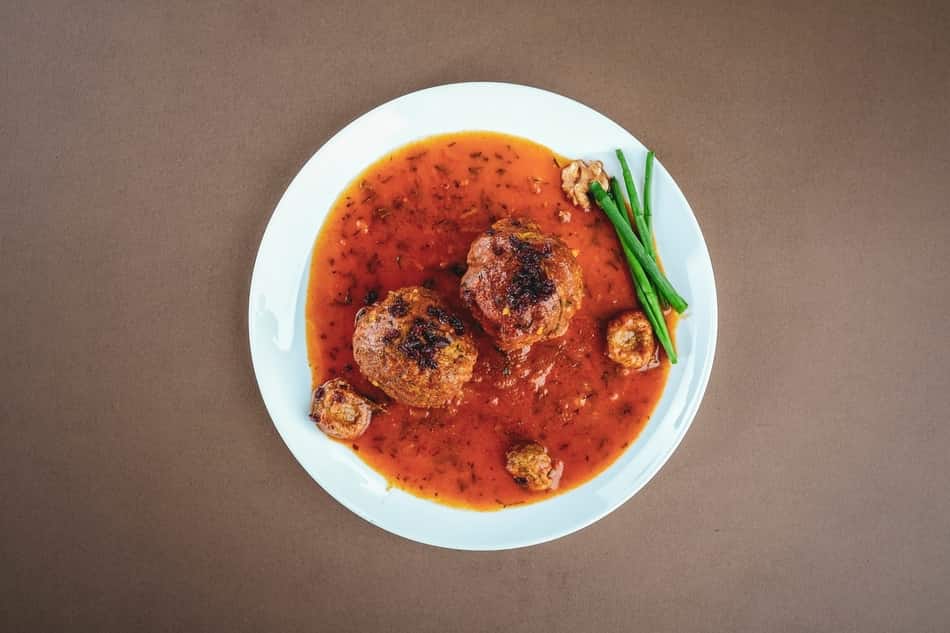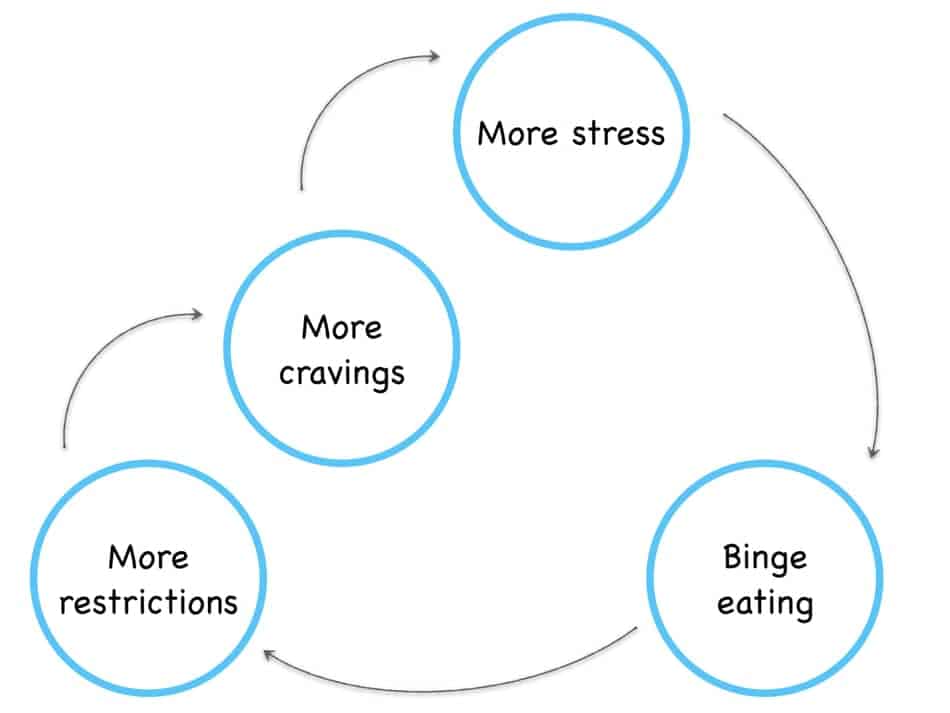
Eating one meal a day is been very popular for the last couple of years because of the potential and promising results. So in this article, I will walk you through all the do’s and don’t of doing one meal a day, and most importantly, you will find out can you lose weight by eating one meal a day.
You can lose weight by eating one meal a day. Weight loss is driven by caloric deficit. Having one meal will reduce 2/3 of your daily calorie intake, which will result in using stored fat as a source of energy. This means, eating one meal a day will put you in a caloric deficit without even trying.
So the can be done and can be done fast. But you need to know what you’re doing. Many times people are being inspired by before and after pictures and they dive right in without any preparation.
Can One Meal A Day Help You Lose Weight?
If you’ve been dieting on and off you know that any diet can work, as long as you stick with it. That’s why people who start any diet, initially lose a lot of weight. But after a while weight comes back up again, with interest. So can one meal a day help you lose weight?
One meal a day can help you lose weight. It improves hunger tolerance and appetite control. Therefore it helps with getting full with less food and differentiating between physical hunger and emotional hunger.
None of the diets teaches you that. Hunger tolerance is a skill that you need to practice. And the only way to practice that is by not eating. And even when you stop doing one meal a day, the skill of eating less will come naturally to you.
So regardless if you will be eating one, two, or three meals a day. You will eat less without even trying.
On the other hand, when you follow any popular diet, the only way you see results is by eliminating staple foods or macronutrients (carbs, meat, fat).
So it gets very boring very quickly.
And the longer people stay on diet, the more cravings they build-up for those foods. For instance, if you’re on a low-carb diet, very likely you will crave foods that you cannot have.
Cookies, pasta, bread, rice, etc.
Or if you’re on the carnivore diet, soon you will start to crave some basic fruits and veggies. So it’s not something you can do forever. You may be successful in the short-term.
But here’s the thing.
Everyone can kick ass in the short-term. But to be able to maintain the results for longer, you need to be able to sustain whatever you’re doing.
That’s why people fall short on most diets because they just not sustainable. You lose weight because you eliminated some foods. And as long as you start eating those foods again, the weight come back up.
Unless you won’t eat them for the rest of your life! Who’s gonna sign up for that? Nobody.
Listen.
I used to have this loop.
I would restrict myself from foods that I like. And the longer I was restraining from those food, the more I’ve crave them. More cravings made me more stressed. All I could think of was the food that I cannot have.
And BOOM!
One day it get’s to the point that you cannot wait any more. So you just give up and reach for those foods. How is that make you feel? Crappy.
You feel like a biggest looser.
So now you promise to yourself to never ever eat that sweets/alcohol/bread again. You tight up the belt even more. More rules. More restrictions.
And it happens again.

And that’s how people get depressed, demotivated, and lose their hopes. Until a new diet/shake/pill comes in.
I won’t be covering here how much weight you can realistically lose on OMAD. I’ve already covered that in “how much weight can you lose on one meal a day“, which I recommend you read.
Can I Eat One Meal A Day And Lose Weight?
Eating one meal a day offers valuable lessons about yourself and your body signals.
You can eat one meal a day and lose weight. Reducing the number of meals per day will lead to reduced calorie intake. Therefore, it makes your body switch from an external energy source (food) to an internal energy source (body fat).
But apart form calorie deficit, one meal a day is a real game changer, especially if you struggle with snaking or eating under stress.
One meal a day helps you to really sense your body signals. It helps you to tell the difference between hunger, appetite, and craving.
Let me tell you a story.
I come from a family where we never share our feelings. To this day, my mother is afraid of telling others what she feels. The same with her brother (my uncle). She is extremely uncomfortable with uncomfortable feelings. Pain, anxiety, frustration, stress, shame, doubt, fear, etc.
She is willing to do anything she can to NOT feel those emotions. So she eats. She smokes. She binge watch TV. She is a doctor, so she understands better than anybody else that what she is going is not healthy.
But she is doing it anyway.
Because her tolerance of discomfort is so low, she is willing to abuse her body rather than feel uncomfortable.
She eats when she is sad, she eats when she is lonely, she eats when she is anxious, etc. She found a way to “run and hide” from those emotions. And food/cigarettes/TV drama is her vehicle to “numb herself”.
So now imagine.
If you’re a kid, and you’re growing up in this type of environment, the message is clear.
Food is to feel better. Food is like a friend. Food is like a buddy that you can always count on when you feel down.
The problem?
The problem is that this leads to severe eating disorders. Those same problems I had for years. I was using food all day every day to feel better.
I didn’t even know what does it feel to be physically hungry.
So if I don’t know what I feel, I cannot tell the difference between hunger and emotional discomfort, imagine what happens when I go on fasting.
Now you just take away all my numbing mechanism (food) that was with me all those years.
Yikes!
It’s like you just open the scalp and expose the flesh. You can see crystal clear what is happening underneath.
But it is the only way that I know to finally break the chain and realize how exactly hunger feels.
It helped me to understand that most of the time, I wasn’t really hungry. I was bored, lonely, sad, happy, [place any emotion], and I was using food to deal with that.
That was the biggest lesson I got from eating one meal a day. Because now I could control myself.
One meal a day is simply the form of intermittent fasting. You can have one meal a day that you can stretch out during the 1-hour window, and you fast for 23-hours.
This is a great approach to caloric deficit and is simple to sustain because it doesn’t require any additional restrictions.
Unlike most diets that have more complicating rules (eat that, measure that, don’t eat that), one meal a day doesn’t eliminate specific food groups or macronutrients.
So it make life easier, not harder.
